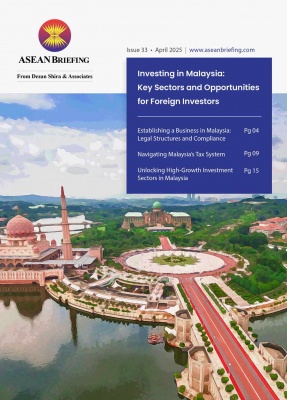
Our collection of resources based on what we have learned on the ground
Covid- 19: Challenges Facing Foreign Enterprises
Q&AAs a record number of COVID-19 cases spread around the world, from South Korea to Iran and Italy, things are slowly going back to normal in China. Amid a gradual recovery in production and general business, we expect the situation to improve by the end of March.
We sit down with Ines Liu, International Business Advisory Assistant Manager and Head of the Australian Desk, to discuss how businesses can navigate the impacts of COVID-19.
What are some of the most significant challenges foreign companies are facing in China amidst the outbreak?
Travel disruptions and reduced employee productivity are two of the main challenges businesses face currently. Due to the restrictions on travel, migrant workers were slow to return to where their work is located.
Even though the government expected a large number of people to get back to a normal work pattern by the end of February, we have seen that in actuality it will take a longer to return to normal business operations. We suspect that businesses should be fully operational by the end of April.
The disruption has not only affected normal business operation and production but has also a significant impact on staff and the management of revenue and cash flow. All operating costs such as rent, wages, interest payment and other business costs must still be paid during this time period. For many businesses, especially for SMEs, it’s very challenging to survive.
The Chinese government has announced many measures to support foreign invested enterprise. Can you summarize what those measures are? Do you think those measures will be very helpful?
To cushion the economic impact of COVID-19, the Chinese government has issued various regulations to support enterprises to overcome this difficult time. These measures cover many areas. For instance, there are incentives for medical supply donations, social security benefits exemptions for employers, provision of tax reductions, etc.
We believe that the most effective policy to help foreign businesses in China is to ease the burden on companies via tax cuts and deferrals.
To combat the impact of COVID-19, what are your insights in terms of practical issues for foreign businesses in China?
Uncertainties remain concerning the development of the epidemic. While the Chinese government has announced several policies aimed at supporting businesses, the full extent of the responses from the government at central and local levels, and speed of recovery from the epidemic in the months to come are yet to be seen.
In any crisis, protecting people is the primary focus. However, cash flow is often the next critical area. The approach to tackling this issue may vary and depends on your specific situation and industry. As a principle, you should start with identifying key business issues. For example, do you have any employees that need to be relocated away from coronavirus outbreak areas?
If part of your supply chain in located in severely affected areas, will this cause a downturn in any of your key markets? Have you prepared a systematic remote working infrastructure and established remote work policies and mechanisms?
Based on your answers to the above, you should develop a customized action plan.
Furthermore, in the coming months, your clients, suppliers, distributors, and service providers will probably be hesitant to meet in person. Finding the right remote, virtual, and digital solutions to this issue will be critical for MNCs.
To help our clients deal with these challenges, our firm has launched a vCFO (virtual CFO) service designed to provide your company with local financial expertise without having the need for your company to send an executive abroad.
Our team has also recently published a magazine, "Operating Your China Business during a Crisis and Contagious Disease Outbreaks," discussing how foreign businesses can handle their operations in a public health emergency.
During this time, we expect SME’s may consider downsizing or restructuring through M&A in order to cope with the impacts of Covid-19 or even shut down their operations. Before taking any actions, it’s suggested to consult your local professional adviser to assess the viability of your business and determine the full effect of these plans on your operations.
The last point I would like to touch upon concerns not only MNCs in China, but also foreign investors who are planning to do business in the country. For manufacturing and trading companies, we suggest exploring strategies in new markets (e.g.SE Asia countries), which we call the China plus 1 or 2 strategy.
A China plus 1 or 2 strategy will allow your company to better cope with sourcing problems/risks during a crisis period, lower operating cost, and still allow you to capture and take advantage of China's huge market.
It is important for foreign companies to have a good understanding and knowledge of what types of risks and obligations they have may expose themselves to.
< BACK TO LIBRARY
Subscribe to receive latest insights directly to your inbox
Subscribe NowOur Clients
Discover our esteemed global clients across diverse sectors. We believe in providing our clients with exceptional service and a commitment to being their partner for growth in Asia.
See what our clients say about us































